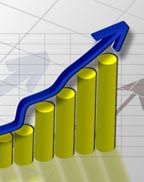
MONDAY, July 6, 2015 (HealthDay News) — High levels of the hormone testosterone and the fight-or-flight stress hormone cortisol may prompt financial traders to make risky investment choices, researchers say.
The finding stems from a pair of simulations conducted in a laboratory setting.
“The results suggest that cortisol and testosterone promote risky investment behavior in the short run,” study author Dr. Ed Roberts, from the department of medicine at Imperial College London, said in a university news release.
“We only looked at the acute effects of the hormones in the lab,” he added. “It would be interesting to measure traders’ hormone levels in the real world, and also to see what the longer-term effects might be.”
In the first lab experiment, researchers measured levels of both hormones in more than 140 men and women before asking them to engage in an asset-trading game. In that case, having higher cortisol levels was correlated with making more risky decisions.
In the second experiment, 75 young men were actually given either cortisol or testosterone (or a dummy pill) before being asked to play the same game. In that case, those who ingested either hormone tended to gravitate towards riskier choices, the findings showed.
Specifically, cortisol seemed to make riskier assets seem more attractive, while testosterone appeared to boost optimism with respect to price predictions, the researchers found. But the study did not prove a cause-and-effect link between high levels of the hormones and risky financial behavior.
The aim of the study was “to understand more about what these hormones do. Then we can look at the environment in which traders work, and think about whether it’s too stressful or too competitive. These factors could be affecting traders’ hormones and having an impact on their decision-making,” Roberts said.
Study author Dr. Carlos Cueva, from the department of economics at the University of Alicante in Spain, said, “Our view is that hormonal changes can help us understand traders’ behavior, particularly during periods of financial instability.”
More information
The U.S. National Institutes of Health has more about testosterone in men.
Copyright © 2025 HealthDay. All rights reserved.

